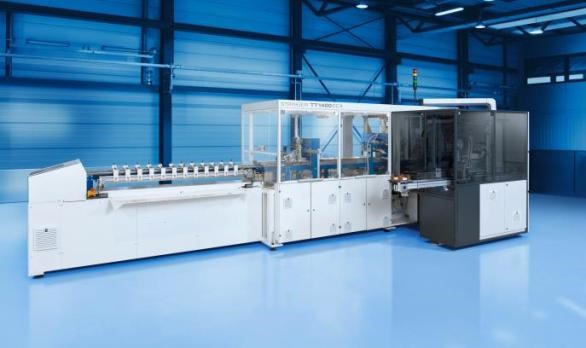Teamtechnik will supply its stringer technology to an innovative module manufacturer based in Catania, Sicily. The TT140 ECA stringer will be used to connect cells based on heterojunction (HJT) technology.
The system utilizes an adhesive technology, which reduces thermal and mechanical stress on the cells. The technology was developed in-house by teamtechnik, and involves applying an electrically conductive adhesive (ECA) to both sides of the cell using a screen printing technique. Light capturing ribbons are then positioned, ready to be connected to the string, and cured at a temperature of roughly 160ºC.
According to teamtechnik, the technology has been tested in various applications, and found to reduce stresses on sensitive HJT cells.
The manufacturer ordered an unspecified number of the machines, and financial details of the transaction have not been disclosed.
“With our innovative adhesive technology for HJT cells we aim to support our customer in advancing the technology transition rapidly, say teamtechnik Vice President Sales Sven Kramer, “and to contribute towards enabling the production of high-performance modules with the lowest possible levelized cost of electricity.”
The name of the company placing the order was not given, however it is likely to be Italian company Enel SpA, which has previously announced plans to invest €80 million to convert its amorphous silicon facility in Catania to produce HJT modules.
This content is protected by copyright and may not be reused. If you want to cooperate with us and would like to reuse some of our content, please contact: editors@pv-magazine.com.




By submitting this form you agree to pv magazine using your data for the purposes of publishing your comment.
Your personal data will only be disclosed or otherwise transmitted to third parties for the purposes of spam filtering or if this is necessary for technical maintenance of the website. Any other transfer to third parties will not take place unless this is justified on the basis of applicable data protection regulations or if pv magazine is legally obliged to do so.
You may revoke this consent at any time with effect for the future, in which case your personal data will be deleted immediately. Otherwise, your data will be deleted if pv magazine has processed your request or the purpose of data storage is fulfilled.
Further information on data privacy can be found in our Data Protection Policy.